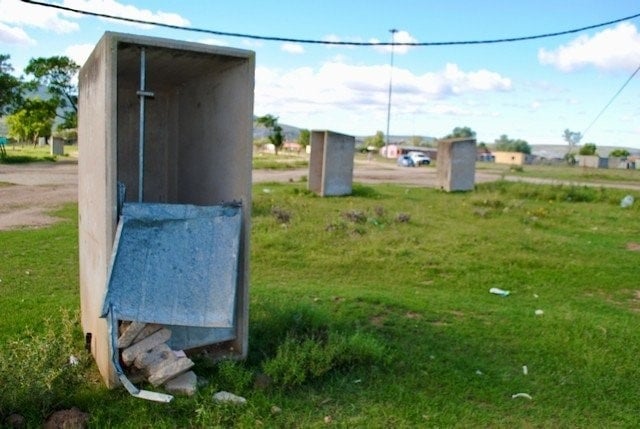
The trajectory since the dawn of democracy is that many have to use a hole in the ground to relive themselves. However, there is hope on the horizon in South Africa as we grow and nurture a new sanitation paradigm – that of a non-sewered sanitation future, writes Jay Bhagwan as we mark World Toilet Day.
The sad reality is the quest for cheap solutions rather than cost-effective solutions results in the poor or many in the developing world receiving a hole in the ground and the rest the gold standard of a waterborne sanitation option. This not only fuels inequity but also quashes development and the aspirations of improved sanitation, as well as access to a sanitation market.
As someone commented, "It is a sin that in today’s modern times that we continue to flush our human waste in times of growing water constraints".
The Achilles heel is the lack of aspirational sanitation technology and innovations. The sector's infrastructure driven culture has blinded us from adopting and driving innovation and disruptive solutions. That is our crisis, continuing to perpetuate this 'sin' – where our objective at the city level has become to keep the 'sh*t' flowing, even in a crisis.
Haves and have-nots
We are still locked into a 200-year-old "Victorian solution", and this lock-in to technology is one of the key factors which continues to provide the poor with undignified sanitation in urban and rural settlements, rural schools, clinics, hospitals and households. This drives a homeland-style development trajectory which perpetuates the development of two types of citizens in our country – the haves and the have-nots. The question to ask is why should generations of rural schoolchildren be subjected to a hole in the ground.
Unfortunately, this has been the trajectory for many since the dawn of democracy. However, there is hope on the horizon in South Africa as we grow and nurture a new sanitation paradigm – that of a non-sewered sanitation future.
READ | Tiny Lebelo | Give rural schoolchildren the dignity of decent toilets
On World Toilet Day, I ask if you believe that this is possible? I do and I am optimistic that this reality is not far away.
On the back of climate challenges and associated water security, non-sewered sanitation offers a sustainable pathway for the future. Leading this initiative nationally and globally is the Water Research Commission's (WRC’s) flagship programs of SaNiTi (Sanitation Transformation Initiative) and SASTEP (south African Sanitation Technology Enterprise Programme) in partnership with the Department of Science and Innovation (DSI), Department of Trade and Industry (DTI), Department of Water and Sanitation (DWS) and international partners, the Gates Foundation.
Recognising that huge strides have been made in conventional waterborne sanitation and its societal impacts, these all come at a significant financial cost and energy requirement.
Climate changes and stresses on water availability put on added pressure on water resources available for flushing and transporting human waste.
Today’s water crisis in the urban world is in reality a sanitation/sewerage crisis. Thus, a new sanitation paradigm which challenges the current paradigm and supports technology disruption is urgently needed. That is a technology which can safely treat human excreta and matches user preferences without the need for sewers, and minimal reliance for external water, energy and one which has the potential for beneficiation of waste streams.
Novel technological options
Through innovation and smart chain supply, universal access can be achieved sustainably and link itself to water security and business opportunities. This opportunity opens up for leapfrogging these solutions in growing urban and rural settlement of the developing world, as well as water starved developed world, reducing water consumption, and carbon footprint and eliminating pollutant pathways.
The non-sewered sanitation solutions (NSS) are the next generation of off-grid, innovative and novel technological options for sanitation that takes into account available water and energy resources, user preferences, and variable user population, and are able to contribute to revenue generation through beneficiation of waste products or reduce operational and maintenance costs. Such an intervention can potentially contribute to 50% in reduction of water used and supplied, possibly huge savings on capital associated with sewers and resource-intensive traditional wastewater treatment systems, reduction or elimination of pollution pathways, etc.
The further benefit offered by NSS is the potential for a sustainable new sanitation circular economy, which offers opportunities for job creation and social upliftment, as well as industrialisation, localisation and a new services industry.
The South African Sanitation Enterprise Programme - SASTEP coordinates the national system of innovation around innovative and emerging sanitation technologies by organising various components, systems, role players and resources required to foster a new and emerging sanitation industry in South Africa.
Through strategic partnerships with relevant stakeholders and policy makers, SASTEP seeks to enhance existing policy and regulatory frameworks that will promote, support, and attempt to remove impediments to a new sanitation paradigm. Through providing guidance and support, the programme champions the harmonisation of product and performance standardisation to enable the development of suitable sanitation technologies, provide end-users with confidence and assurance, reduce cost, minimise waste, and increase productivity at different levels of the sanitation value chain.
It helps fast-track the adoption of innovative and emerging sanitation technologies in through fostering local manufacturing and commercialisation. The core strategy of the programme is to support and empower sanitation innovators (technology partners) and sanitation entrepreneurs (commercial partners).
SA is backyard for development
The national and global community are yet to harness the full potential of non-sewered sanitation while progress is being made.
Frequently questioned with criticism and pessimism, the Gates Foundation's persistent investments in re-inventing the toilet initiative has stimulated new science and innovations on the next generation of sanitation technologies. Mimicking the vision and the development pathway of the computer revolution, we are seeing the emergence of these first generation products in the near horizon.
With the interest of big global industry players, the reality of the NSS revolution is near, and South Africa is the backyard for the development of these new solutions, some of them which are in demonstration and fully operational in different settings around the country by the WRC with local partners.
A recent Water and Industry Master Plan-2022 report by non-profit Trade and Industry Policies (TIPS) indicated that new sanitation has the potential to generate an estimated 32 871 jobs that could be supported through delivering improved sanitation to about 3.3 million people across the 10 most water-stressed municipal districts at a total cost of around R16 billion.
They also suggested that retrofitting smarter and more sustainable technologies in existing private sector infrastructure (households and businesses) has the potential to create 2.4 million short-term contracts, translating to 25 000 new direct long-term jobs.
READ | OPINION: Sudhir Pillay, Gina Pocock, Jay Bhagwan - Your poop tells no lies - tracing Covid-19 spread
As the front-runners in this revoluSAN, we may have lost opportunities to harness these innovative platforms to the benefit of key programmes such as the President’s and Department of Basic Education's SAFE programme, where the roll-out of school sanitation persisted in the normal way over the potential technology offerings of the NSS paradigm.
Similarly, many other sanitation programmes have followed the same pathways delaying the realisation of this new sanitation industry potential for South Africa.
On this World Toilet Day, I wish to congratulate all those scientists, innovators, visionaries, investors, institutions, students and many others who have relentlessly and passionately worked towards making this a reality. We are on a trajectory similar to the mobile industry and its realisation of a more just telecoms world. In my time, I am optimistic that the new sanitation pathway offers hope and thus look forward towards improving dignity by providing aspirational sanitation solutions, as well as eliminating this inequity in sanitation of where you are born determines the technology you receive.
- Jay Bhagwan is an Executive Manager at the Water Research Commission.
*Want to respond to the columnist? Send your letter or article to opinions@news24.com with your name and town or province. You are welcome to also send a profile picture. We encourage a diversity of voices and views in our readers' submissions and reserve the right not to publish any and all submissions received.
Disclaimer: News24 encourages freedom of speech and the expression of diverse views. The views of columnists published on News24 are therefore their own and do not necessarily represent the views of News24.




 Publications
Publications
 Partners
Partners























